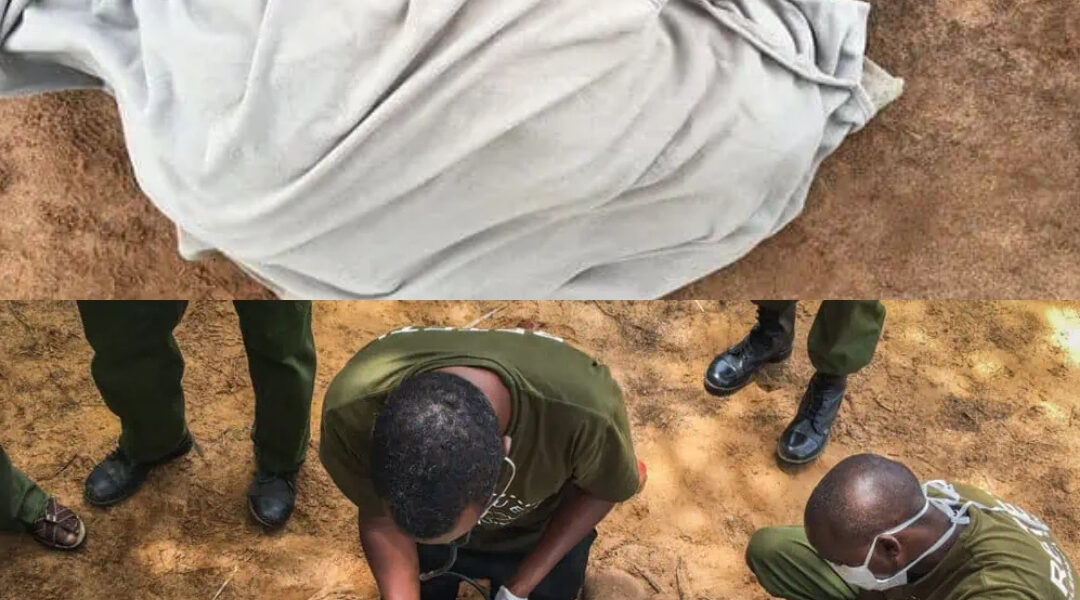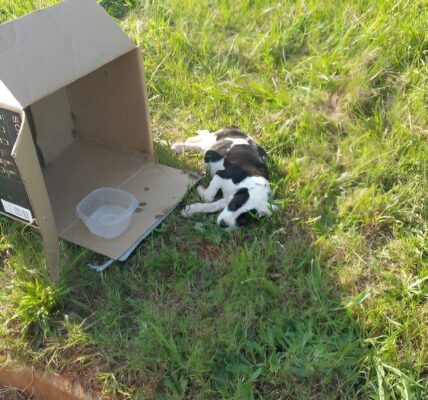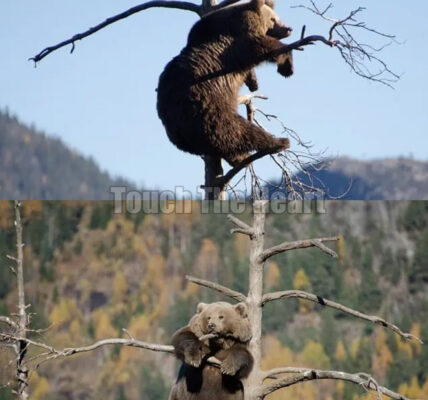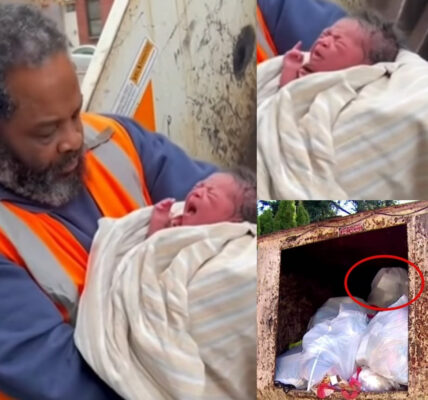The Cry That Moved the River: Lomunyak’s Story of Survival and the Men Who Wouldn’t Let Him Die.
A Cry in the Dark

It was just past 2 a.m. when the stillness of the Samburu night was shattered by a sound that pierced through the rustling trees — the desperate cry of a baby elephant. At Elephant Bedroom Camp, three security guards on night duty froze for a moment, listening. The cry was sharp, terrified, and hauntingly human. Something was terribly wrong.
Without hesitation, the men grabbed their torches and ran toward the sound that echoed from the banks of the Ewaso Nyiro River. What they found stopped them cold — a tiny elephant calf, no more than two months old, struggling in the raging water, its trunk flailing, eyes wide with terror.
Into the River

The current was strong that night, swollen from earlier rains. Most people would have stood on the bank, helpless — but these men didn’t.
They looked at one another once, wordlessly, and jumped.
The river was cold and fast, pulling at their clothes, trying to drag them under. But their eyes stayed fixed on the calf. With every desperate cry, the men pushed forward, fighting the current until they reached the trembling animal.
It took all three of them to haul the tiny body out of the water. The calf’s legs were weak, its skin torn in places, blood mixing with river mud. It let out a soft, exhausted trumpet — then collapsed against the men’s feet.
Waiting for Help

The guards worked quickly. They lit a fire to keep the calf warm, covered it with dry blankets, and radioed for help. The call reached Save the Elephants and the Kenya Wildlife Service (KWS), who immediately contacted Reteti Elephant Sanctuary — a community-run rescue center known for caring for orphaned elephants.
Hours later, as dawn painted the savannah gold, the rescue team arrived. They searched the area for the mother — hoping she might still be nearby — but found no sign. The little calf was alone.
A Second Chance
Dr. Matthew Muitinda, a wildlife veterinarian from KWS, knelt beside the calf, gently examining its wounds. He listened to its weak heartbeat, checked for fractures, and spoke softly, as if the young elephant could understand that help had finally come.
The team gave the calf fluids, antibiotics, and a sedative to ease its pain. One of the rangers whispered, “He’s a fighter.” And indeed, even after all he had endured — the river, the fear, the loneliness — the calf lifted his trunk as if to acknowledge the people who refused to give up on him.
They named him Lomunyak, a Samburu word meaning “lucky one.”
The Journey Home

The drive to Reteti Elephant Sanctuary was long and bumpy. Wrapped in a blanket, Lomunyak lay on a bed of straw in the back of the vehicle, his trunk occasionally reaching out toward his rescuers. Every few minutes, a caretaker whispered comforting words, the way one would soothe a frightened child.
When they arrived, the sanctuary staff were waiting with warm milk and soft sand for his enclosure. He was weak but responsive, his eyes curious despite the trauma he had faced. For the first time since that terrible night, he seemed safe.
Healing and Hope
Days turned into weeks. Lomunyak began to heal. The cuts along his legs and sides closed under the care of veterinarians, and soon he was drinking milk from a bottle like any other baby elephant. His keepers took turns feeding him, patting his back, and even humming as he fell asleep under the shade of acacia trees.
They noticed something remarkable — he loved company. When other orphaned calves passed by his enclosure, Lomunyak would stretch his trunk toward them, eager for connection. Slowly, he was being introduced to the rest of the herd, learning to play, to dust himself, and to trust again.
The staff often said, “He’s not just surviving — he’s remembering how to live.”
A Message of Courage
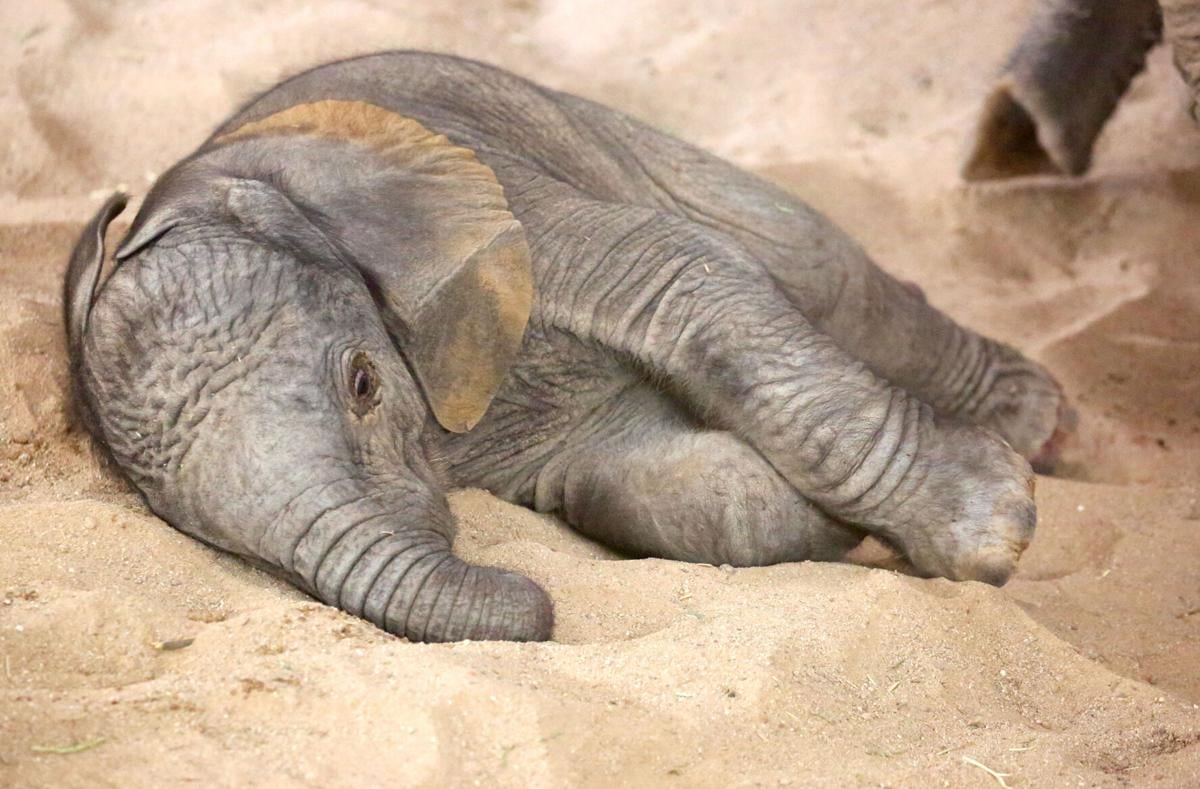
News of Lomunyak’s rescue spread quickly across Kenya and beyond. Photos of the little elephant drinking milk from his bottle melted hearts around the world. People sent messages of support, donations, and gratitude to the heroes who had risked their lives that night.
The men at Elephant Bedroom Camp didn’t think of themselves as heroes. They simply said, “We heard him cry, and we couldn’t stand by.” But their courage became a symbol — a reminder that compassion can cross any river, even one as wild as the Ewaso Nyiro.
The Legacy of Lomunyak
Today, Lomunyak continues to grow stronger at Reteti Elephant Sanctuary. His caretakers say he’s playful, gentle, and always the first to greet visitors. His story is shared with children who visit the sanctuary — a story of bravery, teamwork, and hope born from tragedy.
The rescue of one small elephant may seem like a small act in the vastness of Africa’s wild lands. But for Lomunyak, it meant everything.
And for the men who saved him, it was a night they will never forget — the night when three humans answered a cry in the dark, and in doing so, changed a life forever.
Because sometimes, courage doesn’t roar.
Sometimes, it wades into a cold, wild river at 2 a.m. — to save a life that cannot even say “thank you.”
